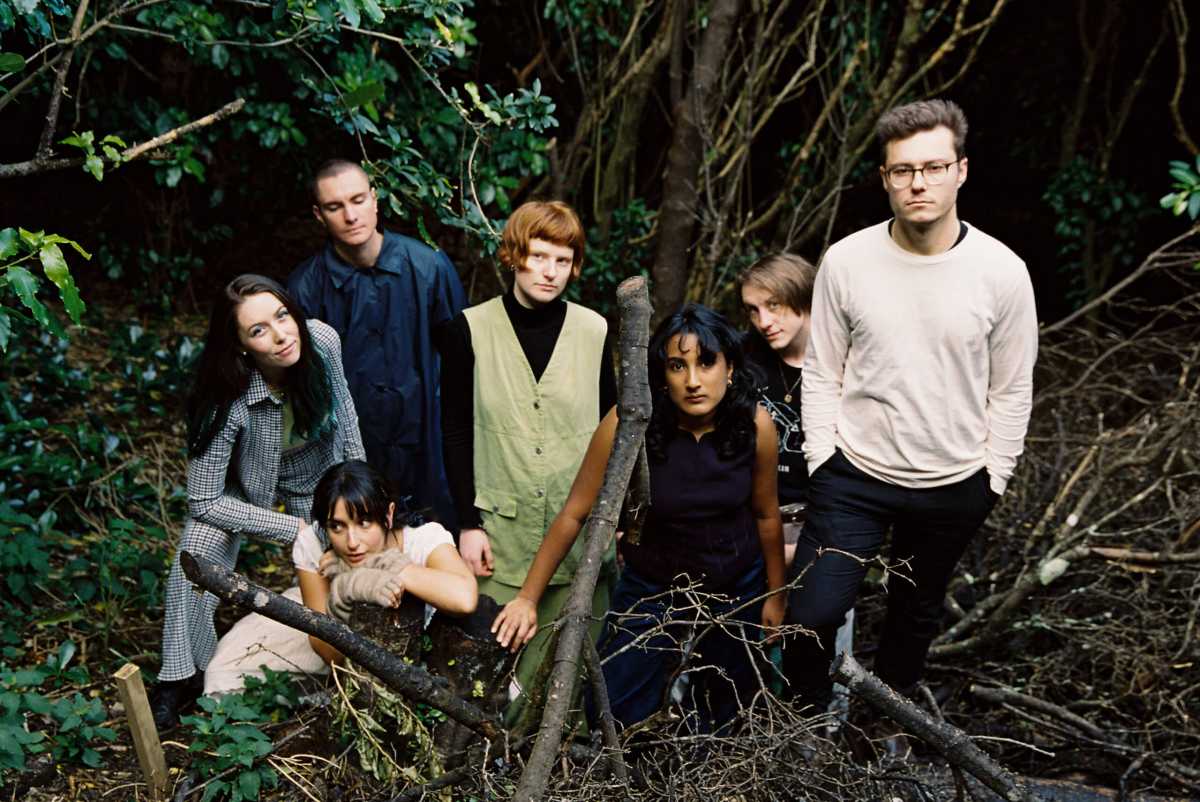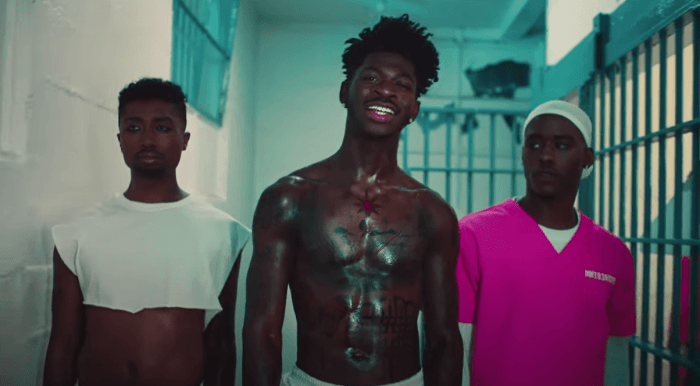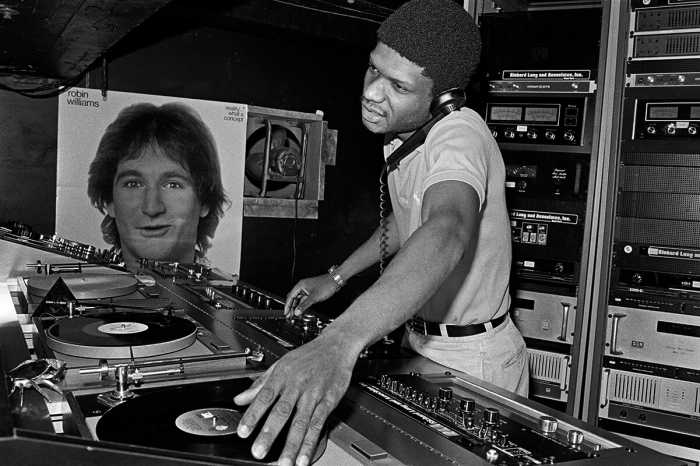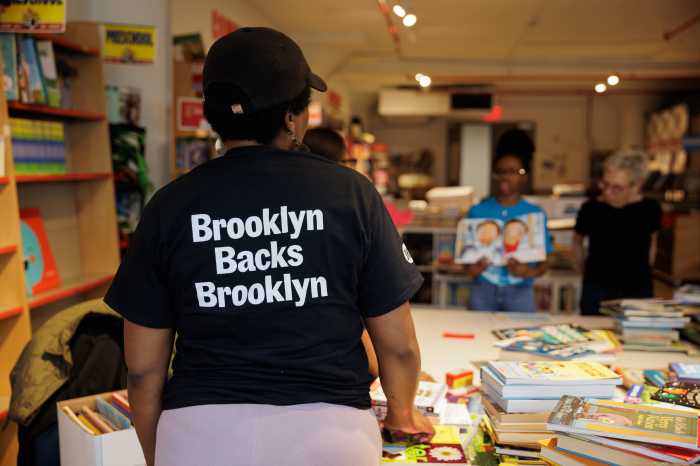This month, we catch up with the sixth solo album from bi, trans singer/songwriter Ezra Furman, queer singer and rapper Shygirl, and the LGBTQ-inclusive collective the Recitals.
Ezra Furman | “All of Us Flames” | Anti-
On a casual listen, singer/songwriter Ezra Furman’s latest album is a look back at heartland rock, with added inspiration from Lou Reed and ‘60s girl groups. Zoom in closer, and the unique aspects of her approach become much clearer. (She wrote and performed the soundtrack to the Netflix show “Sex Education, appearing live in concert during one episode.”) “All of Us Flames” is a sibling to Sharon van Etten’s glossier “Remind Me Tomorrow,” also produced by John Congleton. Both draw on “Born in the U.S.A.”-era Springsteen, adding fuzzed-out synthesizers. Furman goes much further, using slightly murky sound design and running a shaky, one-note keyboard riff through several songs. “All of Us Flames” suggests a broken carnival ride, stuck repeating the same actions in perpetual motion.
“All of Us Flames” is full of Americana imagery: passing trains, outlaw couples on the road. She’s currently studying to be a rabbi, and her lyrics reflect her devout faith. The soaring crescendo of “Train Come Through” is actually about the wait for a Jewish messiah to emerge. After identifying publicly as genderqueer, she came out as trans last year. Within the first three lines of “Book of Our Names,” Furman references the Book of Exodus (called the “book of names” in Hebrew), Trans Day of Remembrance, and the Holocaust. Furman uses religious imagery to express a constant yearning for a more just, humane society and a connection with the divine: “Let’s meet up in a place that isn’t anywhere/At the temple of broken dreams.” Indie takes on Springsteen’s style are far from uncommon, but Furman gazes upon the arena without being able to leave the parking lot, making music whose big gestures are coated in fuzz and murk.
The Recitals | “Orbit I” | Flying Nun
The names of the Recitals’ individual members are unlikely to ring bells with many Americans, but in the New Zealand indie scene, they’re a supergroup. The seven-piece group don’t all live in the same city, which led to recording their debut album “Orbit I” piecemeal, but they formed with the intention of expressing a female and/or LGBTQ perspective.
With that many instruments, the mix can get cluttered and overly busy. (The presence of cellist Olivia Wilding tends to get drowned out.) The Recitals go for swift changes in dynamics, but instead of raising the volume level gradually, their songs instantly run off in new directions. At best, their music has an excitingly unpredictable feel, drawing on post-rock without succumbing to its tendencies towards tuneless drift. Several songs start with delicate, trebly guitar arpeggios straight out of ‘80s jangly, but they also glance at Midwest emo, with songs getting louder and more complicated very quickly after tuneful intros. The nature imagery in their videos suggests a hint of danger, with the music crackling with electricity and seeming to be in danger of rumbling out of control. On “Rock Dove,” whose second half finds guitar and drums finding for control of the rhythm, that finally happens. The keyboard-driven “Angelpoise,” where percussion is reduced to a faint kick drum and equally quiet samples of speech close out the song, serves as a welcome interlude. Rather than harmonizing neatly, male and female vocals tend to collide. While the band could benefit from introducing more space into their music and making each instrument more distinct, “Orbit I” is an exciting start.
Shygirl | “Nymph” | Because Music
Most of Shygirl’s press reception has centered around her sexually explicit lyrics. You can guess what “BDE,” a 2021 duet with rapper slowthai, stands for. Her debut album “Nymph” follows two eps and collaborations with Mura Masa, Lil Uzi Vert, Pink Pantheress, FKA twigs, and trans producer Arca. It serves up song titles like “Shlut” and “Coochie (a bedtime story).” But where many artists with hypersexual lyrics sound like the anti-heroes from ‘90s erotic thrillers, Shygirl avoids cartoonish extremes. “Nike” puts a new spin on the sneaker company’s ad slogan, as well as declaring “boys, girls, got ‘em all,” but “Coochie,” on which she lusts after other women’s genitalia, is playful and sweet. Sex is just one element of her music — and life — and she treats it as a natural part of a larger picture.
Shygirl had worked with the late trans producer and hyperpop innovator SOPHIE. On “Nymph,” she continues to mine that genre, with help from Arca and PC Music co-founder Danny L. Harle. Its trademarks are all over this album: pitch-shifted vocals, distorted and metallic percussion. “Come for Me” brings together an unusually dissonant set of sounds and makes them work as a catchy tune. Even at her most abrasive, Shygirl spins sugar out of noise. She sings at the top of her register, with a very noticeable British accent. When she raps, she exudes swagger, but her music has an ethereal, wispy side too. She’s equally good at boasting and singing ballads. The strings and pads of “Honey” and “Wildfire” suggest another dimension of her personality. Whatever the production suggests, “Nymph” spins sugar out of it.



































